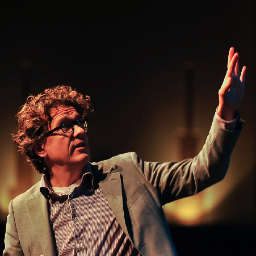WOULD YOU LIKE TO LIVE IN A CITY THATU0026#X27;S TOO SMART?
February 28, 2013
 Cities like New Songdo in Korea and Masdar City in the United Arabic Emirates are the blueprints of the future. These cities are sensor controlled and optimized for the use of energy and waste reduction. Street lights pops on and off based on cars that are detected. On household level, temperature and lighting is monitored and can be controlled from a distance. The idea to tag the children so they can be watched 24/7 is seen as a service to provide a safer community.
Cities like New Songdo in Korea and Masdar City in the United Arabic Emirates are the blueprints of the future. These cities are sensor controlled and optimized for the use of energy and waste reduction. Street lights pops on and off based on cars that are detected. On household level, temperature and lighting is monitored and can be controlled from a distance. The idea to tag the children so they can be watched 24/7 is seen as a service to provide a safer community.
Laura Stupin, a student that lived in Masdar City for one week felt like she was living in a spaceship in the middle of the desert. On her blog she wrote:
“The first day felt like culture shock. The buildings are beautiful here, and they look so different from anything I’ve ever seen, anywhere. My brain really struggled to believe what it was seeing. Is this real? What reality am I in?[…] I keep telling people that it feels like I’m living in a psychology experiment.”
Richard Sennet, professor of sociology at the London School of Economics, argues that no one like’s a city that’s too smart.
“The debate about good engineering has changed now because digital technology has shifted the technological focus to information processing; this can occur in handheld computers linked to “clouds”, or in command-and-control centers. The danger now is that this information-rich city may do nothing to help people think for themselves or communicate well with one another.”
Would you like to live in a smart city?

 English | EN
English | EN 